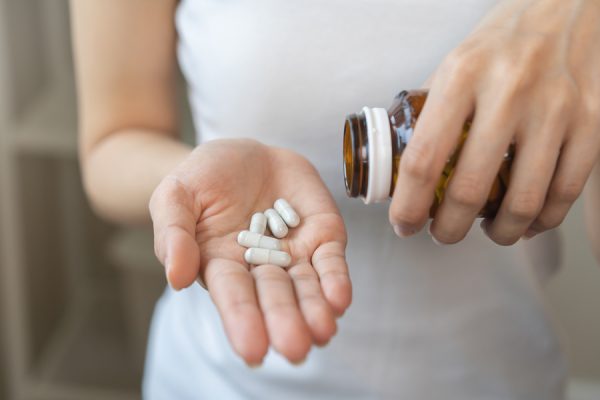How your medication can make you more vulnerable to the heat

Some commonly prescribed medications can make you more vulnerable to the heat.
Medications commonly prescribed to treat high blood pressure, heart conditions, allergies and mental health conditions, can all make you more vulnerable to the heat.
These medications can interfere with the way the body protects itself from the heat, increasing the risk of heat-related illness.
If you take these medications, don’t stop taking them, but be aware that you might be more vulnerable to the heat and recognise the early signs of heat stress.
How your body regulates temperature
Our body temperature, or thermoregulation, is controlled by a part of the brain. Many bodily systems are involved in thermoregulation, which is why a wide range of medications can affect it including:
- Medications that stop you sweating
Our body sweats as a way of cooling down. As the water in the sweat evaporates, the surface of the skin cools, lowering the body’s temperature. Medications that stop you from sweating, therefore, can prevent you from regulating your temperature, resulting in overheating.
- Medications that restrict blood flow to the skin
When the body becomes hot, blood vessels within the skin widen, allowing for more blood to flow to the skin so that excess body heat can escape. Some medications reduce the amount of blood flow to the skin, which impacts the body’s ability to cool down.
- Medications that increase urine production
Diuretics help the body get rid of extra water by increasing urination. This can lead to dehydration, especially in hot weather. Dehydration, in turn impacts the body’s ability to sweat making it more difficult to cool down.
- Medications that increase your body’s temperature
Medications commonly used to treat attention deficit disorders (ADHD), some thyroid replacement medications and antipsychotics can increase a person’s body temperature, making them more susceptible to heat-related illness.
Table 1: Types of medications that can increase the risk of heat-related illness
| Mechanism | Type of drug | Examples of drugs |
| Decreased sweating | ||
| Sedating antihistamines | Promethazine, doxylamine, diphenhydramine | |
| Tricyclic antidepressants | Amitriptyline, clomipramine, dothiepin | |
| Antipsychotics | Chlorpromazine, thioridazine, prochlorperazine, clozapine, olanzapine, quetiapine, | |
| Anticholinergics | Benztropine, oxybutynin, solifenacin | |
| Reduced blood flow to the skin | ||
| Beta blockers | Atenolol, metoprolol, propranolol | |
| Increased urine production | Diuretics | Frusemide, hydrochlorothiazide |
| Increased body temperature | ||
| Psychostimulants | Dextamphetamine, methylphenidate | |
| Thyroid hormones | Levothyroxine | |
| Antipsychotics | Clozapine, olanzapine, quetiapine, risperidone |
What to do if you take these medications?
- continue to take the medications as prescribed.
- talk to your GP if you think your medications are making you overheat
- learn the signs of heat exhaustion and heat stroke so you can act early.
Signs of heat exhaustion can include:
- pale complexion
- profuse sweating
- fatigue, weakness or restlessness
- headache
- dizziness or fainting
- nausea and vomiting
- rapid heartbeat / breathing
- muscle cramps
What to do for heat exhaustion:
- Move to a cool place, lie down, and remove excess clothing.
- Cool your body with a shower, bath, ice/cold packs or damp cloths on your skin.
- Drink small sips of cool water or diluted fruit juice or cordial.
- If symptoms persist or vomiting occurs, seek emergency medical help.
Signs of heat stroke can include:
- confusion
- poor coordination or slurred speech
- hot, dry skin, or no sweating
- rapid heartbeat and shallow breaths
- extreme fatigue
- vomiting and diarrhoea
- loss of consciousness.
The signs of heat stroke mentioned above are a medical emergency.
Call triple zero (000) immediately then:
- Check breathing and pulse; start CPR if needed.
- move person to a cool place, lie them down, remove excess clothing and cool their body down with ice/cold packs or damp cloths.
- if conscious, give small sips of cool water or diluted fruit juice or cordial.
Also see tips for Staying safe during a heat wave.
